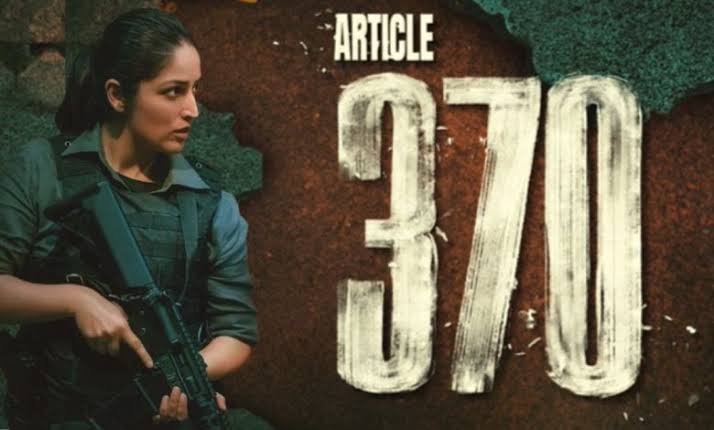Directed by Aditya Suhas Jambhale, “Article 370” emerges as a compelling cinematic exploration of one of India’s most controversial political subjects. The film, inspired by real events, delves into the intricacies surrounding the abrogation of Article 370, a pivotal moment in the history of Jammu and Kashmir.
Prime Minister Narendra Modi’s recent endorsement of the film sparked heightened interest and debate, setting the stage for a cinematic journey that promises to shed light on a complex and polarizing issue. However, as the film begins, viewers are immediately confronted with the disclaimer that “Article 370” is not a documentary but rather a dramatized interpretation of historical events.
Clocking in at a lengthy runtime of 2 hours and 40 minutes, the film ambitiously covers the years from 2015 to 2019, meticulously tracing the political landscape of Kashmir amid mounting tensions and upheaval. Through six distinct chapters, the narrative unfolds, offering a panoramic view of the region’s struggles and triumphs.
At its core, “Article 370” is a tale of power, betrayal, and resilience, anchored by standout performances from Priya Mani and Yami Gautam. Priya Mani, portraying a joint secretary at the Prime Minister’s Office, emerges as the driving force behind the movement to revoke special status from Kashmir. Yami Gautam, in the role of a Kashmiri Pandit named Zooni, navigates the complexities of loyalty and patriotism with conviction and grace.
While the film’s performances shine, its pacing and narrative choices leave room for critique. The initial half meanders through exposition, testing the patience of audiences before finding its rhythm in the latter half. Despite its commendable production value and restrained approach to patriotism, “Article 370” occasionally succumbs to predictable twists and caricatured portrayals.
Nevertheless, the film’s refusal to resort to clichés or overt nationalism is commendable, offering a nuanced perspective on a deeply divisive issue. By refraining from demonizing any particular group or ideology, “Article 370” invites viewers to engage critically with the complexities of Kashmiri autonomy movements and political dynamics.
However, the film’s interpretation of historical events has sparked controversy, with critics pointing to instances of creative liberties and historical inaccuracies. As a result, “Article 370” serves as a catalyst for further exploration and discussion, prompting audiences to seek out additional sources to gain a comprehensive understanding of Kashmir’s tumultuous history.
In conclusion, “Article 370” stands as a bold cinematic endeavor, grappling with the complexities of a subject mired in political and emotional turmoil. While its narrative may falter at times, the film’s ambition and commitment to storytelling make it a noteworthy addition to India’s cinematic landscape, offering audiences a thought-provoking glimpse into the heart of one of the nation’s most contentious debates.
